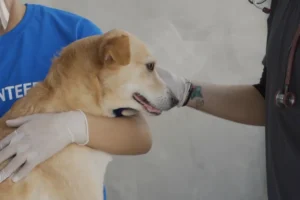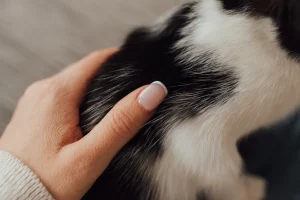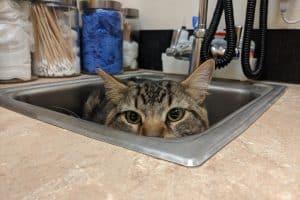If you’ve noticed your furry feline passing gas more frequently after a deworming treatment, you’re not alone. It’s a common concern amongst cat owners, and you might be wondering what’s causing this sudden change in your cat’s behavior.
After deworming, some cats may experience increased flatulence due to changes in their gastrointestinal tract. Here’s a breakdown of why your cat might be farting more post-deworming and what you can do to help alleviate this issue.
Understanding Deworming and Its Effects
Deworming treatments for cats are essential to eliminate pesky parasites that can wreak havoc on your feline friend’s health. When your cat undergoes deworming, it’s like a spring cleaning for their insides, getting rid of those unwelcome guests living in their digestive system.
However, this process can sometimes lead to changes in your cat’s gut flora, causing an increase in gas production. Think of it as your cat’s body adjusting to the eviction of those unwanted guests, which can result in a bit of flatulence as their system recalibrates.
Common Side Effects of Deworming
After deworming, it’s not unusual for cats to experience some side effects as their body purges those pesky parasites. Flatulence is a common issue that many cat owners notice post-treatment. You may find your cat passing more gas than usual, which can be quite pungent at times.
Most cats will experience these digestive issues for a few days following deworming, but if symptoms persist for an extended period or worsen, it’s best to consult your veterinarian for further guidance. Remember, a little extra gas is a small price to pay for a healthier, worm-free kitty.
Pro Tip : To help alleviate your cat’s flatulence post-deworming, consider feeding them a bland diet consisting of easily digestible foods like boiled chicken or rice. This can help soothe their stomach and ease any discomfort they may be experiencing.
Diet Considerations Post-Deworming
After deworming, your cat’s digestive system may need some extra care to help ease any discomfort and reduce excessive gas. One way to help manage these issues is by adjusting your cat’s diet. Consider incorporating easily digestible foods like plain boiled chicken or rice to give their stomach a break. Additionally, increasing fiber in their diet can aid in regulating their digestive system and reducing gas. Foods like pumpkin, which is high in fiber, can be beneficial in this regard.
Moreover, avoid giving your cat dairy products as they can sometimes be hard for cats to digest, leading to increased gas production. It’s also crucial to monitor their food intake post-deworming to ensure they are not overeating, which can also contribute to excessive gas. Remember, a balanced diet plays a significant role in your cat’s overall digestive health, especially after going through the deworming process.
Hydration Importance for Digestive Health
Hydration is key in maintaining a healthy digestive system for your furry friend, particularly after deworming. Make sure your cat has access to fresh, clean water at all times to prevent any dehydration, which can worsen digestive issues. Encourage your cat to drink more water by having multiple water bowls around the house and consider investing in a pet fountain as some cats prefer running water.
In addition to water, broth can be a great way to keep your cat hydrated and provide some nutrients. Bone broth specifically contains essential minerals and amino acids that can support your cat’s digestive health. Remember, staying hydrated is crucial for maintaining a healthy digestive system, especially during the post-deworming period.
Additional Unique Insight: If your cat is not drinking enough water post-deworming, you can try mixing a bit of tuna juice with their water to entice them to drink more. The smell and taste of tuna can sometimes motivate cats to increase their water intake, aiding in their overall hydration and digestive health.
Monitoring Your Cat’s Symptoms
After deworming, it’s normal for your cat to experience some gastrointestinal upset, including farting more than usual. Keep an eye on your feline friend’s symptoms to ensure they are not getting worse. If your cat continues to fart excessively or shows signs of discomfort such as bloating or diarrhea, it’s essential to contact your veterinarian promptly. Persistent or worsening symptoms could indicate an underlying issue that needs immediate attention.
Treating Excessive Flatulence in Cats
If your cat is struggling with excessive flatulence after deworming, there are several ways to help alleviate their discomfort. Ensure your cat is on a high-quality, easily digestible diet to minimize gas production. Additionally, probiotics can help restore your cat’s gut flora and aid in digestion. Consult with your vet before giving your cat any over-the-counter medications to address their flatulence.
Natural Remedies for Gas Relief in Cats:
- Pumpkin: Adding a small amount of canned pumpkin to your cat’s food can help regulate their digestion and reduce gas.
- Chamomile Tea: A few drops of chamomile tea in your cat’s water bowl may help soothe their digestive system.
- Activated Charcoal: Consult with your vet about using activated charcoal to absorb excess gas in your cat’s digestive system.
Remember, it’s crucial to monitor your cat’s symptoms closely and consult with your veterinarian if their flatulence persists or becomes severe. Additional medical intervention may be necessary to address the underlying cause of your cat’s excessive gas.
When to Consult a Veterinarian
If your furry friend continues to have excessive gas even after deworming, it might be time to seek professional advice. Persistent farting could be a sign of a more serious underlying issue that needs to be addressed by a veterinarian. While occasional gas is normal for cats, frequent and smelly flatulence could indicate a gastrointestinal problem that requires medical attention. Don’t hesitate to reach out to your vet for further evaluation and guidance on how to best care for your cat’s health.
Interesting Fact: The Importance of Routine Deworming
Did you know that regularly deworming your cat is crucial for their overall well-being? Even if your cat is an indoor pet, they can still be at risk of picking up parasites from their environment or through other means. Worm infestations can lead to various health issues, including stomach upset and excessive flatulence. By staying proactive with deworming treatments, you can help prevent these problems and ensure your cat stays healthy and happy. Consult with your veterinarian to establish a deworming schedule that suits your cat’s needs and lifestyle.
- Maintain a Regular Deworming Schedule: Consistency is key when it comes to deworming your cat. Follow your veterinarian’s recommendations for treatment frequency to keep your furry companion parasite-free.
- Monitor Your Cat’s Behavior: Keep an eye on your cat’s overall health and behavior after deworming. If you notice any unusual symptoms, such as persistent farting or changes in appetite, consult your vet for guidance.
- Consider Preventative Measures: In addition to routine deworming, take steps to prevent parasites in your cat’s environment. This may include regular cleaning of litter boxes, avoiding contact with potential infested areas, and keeping your cat away from potential sources of parasites.
Alex, a passionate animal lover, has experience in training and understanding animal behavior. As a proud pet parent to two dogs and three cats, he founded AnimalReport.net to share insights from animal experts and expand his knowledge of the animal kingdom.









